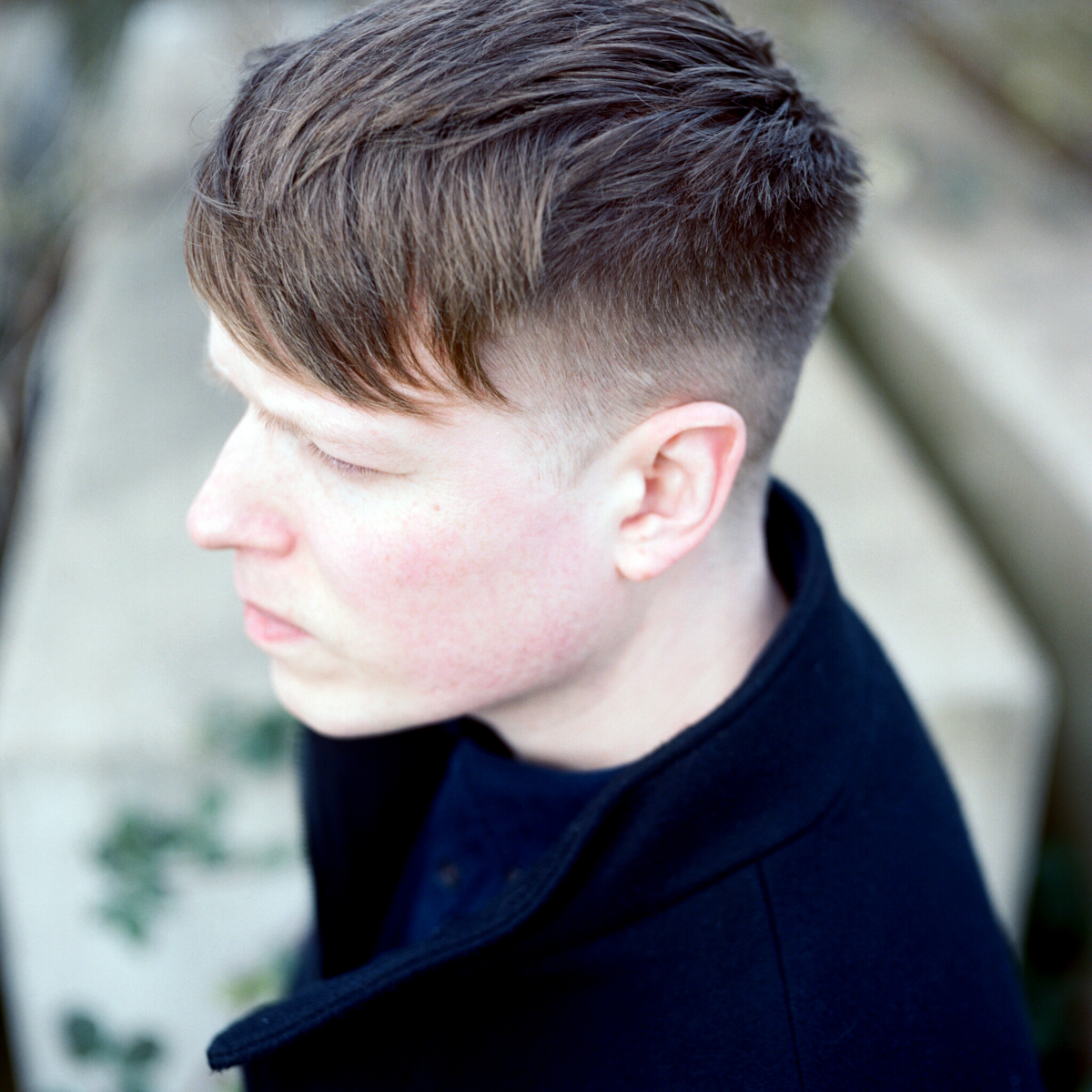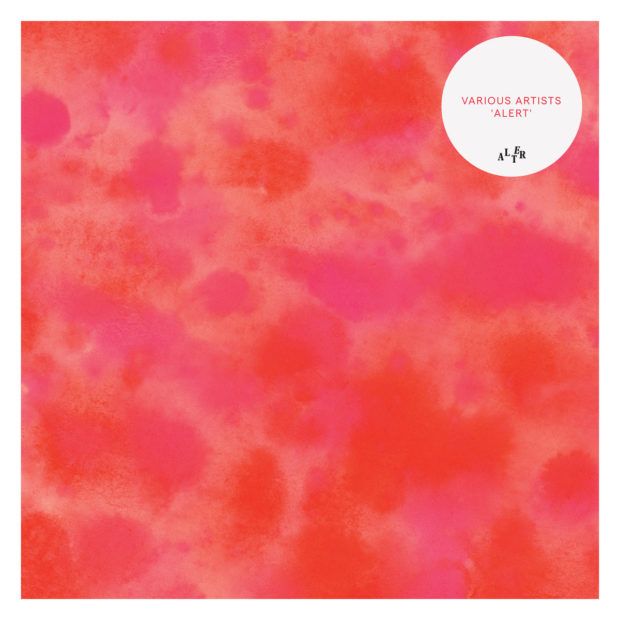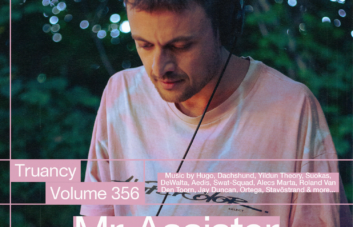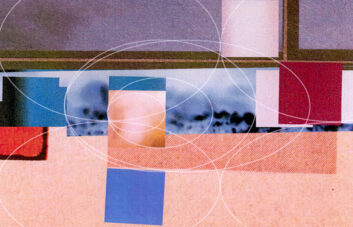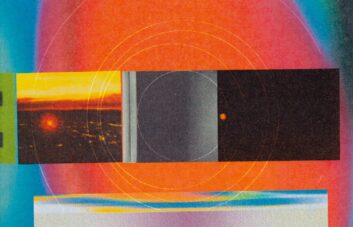Last week London-based artist Helm released his latest record, Chemical Flowers. It’s his third album on PAN, and it’s a beautifully rendered and refined body of work. We caught up with him late last month to discuss the album’s genesis, the state of the world, his label Alter and how modern listening habits have changed the way we consume music.
What have you been up to lately? “I have two part-time jobs which take up four days of the week, then the rest is spent fitting music and my label around whatever’s left. There was a time where I wasn’t working as much due to being away so often, but I’ve not been travelling as much in the last year so I decided to get another job to ease the financial pressure.”
The travel thing – is that just not wanting to be away or is there anything else behind that? “It’s a little bit of not wanting to be away but also wanting to be more selective with gigs. Not having to take everything I get offered for the sake of earning money to survive which started to feel a bit bleak.”
The reason I ask is I saw a conversation on Twitter – this is more DJs and particularly bigger DJs – but in terms of climate change and lots of flights. “That didn’t really inform my decision but it’s something I have thought about since. I’ve done a few gigs in the past where I travelled via train. If you can get somewhere on the train it’s always more relaxing and puts you in a better frame of mind for the gig. With regards to the environment it’s also something that’s quite important to consider and take responsibility for.”
First of all – I really like the album. “Oh cool, thank you.” I’ve listened to it a lot, your music is often quite different from album to album – what’s your background? “It’s difficult to pinpoint a definitive background as I’ve listened to lots of different types of music since I was 12 years old. Even younger if you consider the folk clubs my parents would take me to when I was really young. My first experience of being involved in music scenes as a participator was through punk and DIY scenes in the UK when I was 16. I guess you could say that’s what nurtured me and inspired me to make music on my own terms, within an environment that I could relate to at the time.” This new album seems like an even bigger departure from previous things – every step is greater than the one before, so what do you think was the biggest inspiration or impulse behind putting this one together? “Whenever I finish a record I immediately consider the next one and the potential for where it could go. There’s always the desire to make it bigger, to go beyond what I did previously. It’s never been my intention to make the same thing twice. With Helm I’m consciously making an effort to try and cover new ground that hasn’t been done previously with the project. This whole thing needs to remain fresh to me as time goes on. I also like to make sure that each album is its own individual entity whilst also keeping a common thread running through them, something that lets you tell it’s a Helm record.”
You had a number of collaborators on this record, can you tell me how you got to work with them and what that experience was like? “It was pretty straightforward – I did all of the recording myself and the three collaborators sent their submissions remotely. Me and JG [Thirlwell] met in London before to discuss the possibility of working together, but we didn’t meet at any point during the recording. Karl [D’Silva]’s saxophone I used like a sample bank across the tracks where it worked. JG’s string parts were composed and arranged with the specific tracks in mind. He recorded a lot of material so there was a lot of stuff leftover that I was able to manipulate and process to include in other parts of the album. There were the main melodic string parts and some more abstract free playing which found its way into other tracks. Having that to disperse throughout helped make the whole thing a bit more cohesive I think.”
The promo blurb says something about you recording in reclusive Essex countryside, can you talk a bit about that? “Yeah, the studio I keep all of my equipment in is run by a friend of mine between Basildon and Southend. He offered to give me a set of keys so I could go down and use it whenever he’s not in there basically. That was the springboard for me to start working on the record. I would just go down there for three days at a time and throw myself into the process of recording, sometimes going through into the night. Just long periods of being alone without any distractions meant I was able to focus on making the music 100pc and apply a greater level of detail…” Is that a lonely process? “It’s kind of what I want from it really. When I’m there, I’m there to work, so there’s not really a lot of time to think about the aspect of potential loneliness. Also, living in London, I never feel too lonely most of the time – I have lots of friends, I live in a house with three other people and if I’m not there I’m at my partner’s house so I spend a lot of time with her. And anyway, isolation and solitude can be comforting and beneficial when recording music I find. I like the idea of attempting to channel some of that atmosphere…” If it is only three days a week, vs three weeks… “Yeah exactly. If I was down there for weeks on end, I’d probably go a bit mad. There’s no shower or hot water down there either. It would be quite a disgusting experience after a while.
“I Knew You Would Respond” is almost like 90s TV theme music, I can’t put my finger on it but it’s got all these different things, where does this kind of thing come from? “I was playing around with a couple of loops I had and kept chiselling away at the piece until I found some sort of structure I was happy with. I’d been listening to the band Brainticket for the first time in a while. They’d been on my mind. They’ve got an amazing record called Cottonwoodhill, where the most significant part of the album is a long piece with this looping riff and a bunch of crazy disconnected sounds over the top. I guess I’d felt like “I Knew You Would Respond” could be my attempt at something abstract and psychedelic, in a similar way to how the Brainticket piece is. A weird structure with this linear / nonlinear clash, a state of flux where a lot of the main elements seem to disintegrate or melt down in the middle. I also liked the idea of having these musical strings that juxtaposed with the abstract granular electronics, swirling around throughout the piece.
“Lizard In Fear” – it’s got field recordings, it’s got ambient bits but goes off in other directions, it really feels like you’re trying to take someone down one avenue and then go in another direction – is that your intention? “That piece was the result of a happy accident. It’s one of the tracks I was having trouble finishing because I felt… it’s weird you make the point about going in another direction, because it describes the process of making it somewhat. The original version did the exact opposite, it sort of didn’t go anywhere. It was only when I started playing with the cello part that Lucinda [Chua] recorded – which she originally recorded for another piece – I realised it fit perfectly within the track. A new structure opened up and transformed it into something else, something more surprising, I guess.” It’s just a question of putting A with B and ending up with something completely different. “It’s how I work mostly, you can be chipping away at something for a long time thinking it’s not really going anywhere, or it isn’t something really want to be pursuing for whatever reason. Then you try mixing something different in and the result of a random gesture will completely change it into the thing you were aspiring for all along. It’s an endless process of perseverance and experimentation.”
The title track, honestly, to me, it feels like the end of the world, in a nice way, like the music playing over the credits at the end of the universe. Generally, right now or in your life, do you feel more hope or resignation? “I’d probably say there’s equal amounts of both! Trying to identify with the former more, but the undermining threat of the latter being ever present. I think that’s quite a nice thing you’ve picked up on because I feel the record isn’t particularly uplifting on the whole, but that track does offer a glimmer of hope from the wreckage.”
That’s a good way of putting it! Another thing I’ve noticed about the album is that it’s relatively short. It’s 40 minutes long, which is good, I think. Some of my favourite albums are just that length. Nowadays because we don’t always have CDs, we don’t always have records, we don’t always have these limits – there are a lot of things out there that are endless. You might get a six-hour mix on SoundCloud or 100 tracks on a Bandcamp release. It makes me think of that Jeff Goldblum line in Jurassic Park: “Your scientists were so preoccupied with whether they could that they didn’t stop to think if they should.” I was just wondering how you feel about this limitless expanse of the internet. “I’m glad that you picked up on the length. With Olympic Mess I was keen to make something that felt epic and had potential for the listener to become lost and fully immersed in. That whole thing of making an album which covers four sides of vinyl, I felt I needed to get that out of my system somewhat. With Chemical Flowers I was conscious to pull back a bit – still trying to create that sense of immersion but in a more refined and concise way. I also googled the best length for an album and apparently it’s 37 minutes, which is very close to how it turned out! I liked the idea of there being eight tracks, four on each side of the vinyl – a more balanced work with a sense of symmetry between both sides. The sequence works nicely on the digital version too, so you don’t have to think about it in vinyl terms either. But yeah, to go back to your original question, I think you should be considerate to how much time people generally have to listen to a record these days.
“It’s nice to be sympathetic to that as probably most people don’t even listen to records from start to finish with streaming and stuff like that – maybe I’m wrong – but trying to think of a time when you can listen to a record from start to finish and focus on it, it’s kind of a luxury. I also might exist in a minority of people who like to listen to music in a focused environment. I get to do it maybe twice a week I would say? I listen to two records a week from start to finish – when I’m not at work anyway. If I listen to records at work, I’m not really taking them in the same way than if I put them on at home to relax. One of my jobs is in a record shop, so a lot of the time is spent listening to music that I’m not as invested in, things I’m not necessarily choosing to listen to. It’s weird to think of my music being listened to in the context of streaming, but with this record some of those tracks could work out of the album context and in those random playlists. They’re shorter than tracks on previous, but that’s just how they turned out.” It’s not like you’re sitting there optimising tracks for playlist purposes. “No, I’m definitely not thinking of the best way to monetise it from a streaming perspective.”
I wanted to ask about the Rawabet tape. What in particular made you decide to release that one? Do you record all your sets? “It happened by chance really. It was quite a memorable gig, due to the location and circumstances around it. I don’t tend to record my live sets but Khyam Allami who put on the show – he’s also a musician who plays the Oud – he ended up recording the set and then sent it to me probably about a year after. I didn’t even realise he’d made the recording at the time, he just emailed me out of the blue like “here’s the recording” and it came out really nice. I had some photos on my phone I had taken of my set-up from the night, which I quite liked – just the table of equipment in a green light. I thought it would be a nice thing to document and release. It’s not every day you get to play in Cairo! How did that gig come about? “There’s a promoter in London called St John’s Sessions and I’ve worked with them on a few things before. They were going to do a series of gigs in Cairo, with Khyam helping to organise, being their man over there to help with booking venues and stuff like that. I think it was approached as a kind of experiment or first run. I opened for a musician called Maurice Louca, I think he’s based in Cairo, and Khyam had released his album so it was his album launch gig. There were 300 people there, Alan Bishop from Sun City Girls was performing with Maurice, along with Sam Shalabi and quite a lot of other guest musicians. It was quite a big deal in the city, so much so that they tried to do a second performance as the demand far exceeded the capacity of the venue. There were a lot of people that couldn’t get in just hanging outside, playing music and chatting, like you see anywhere else. It was definitely a memorable evening.”
I really enjoyed your set in Dublin’s Lower Deck in late 2017, it’s a nice small venue. “I liked that venue, it’s funny, I played there in like 2004, 2005, in a duo called Birds of Delay, a noise duo with Steven Warwick who played as Heatsick.” What are your favourite places to play? The most memorable? “I played in Tunisia, in Tunis, in an old consulate building. I’ve played in all sorts of places. I’m trying to think of the weirdest one. I played in a mountain in Austria. I haven’t done a gig outdoors but I will in June, at this new venue that Dennis Tyfus from Ultra Eczema is opening in Antwerp for the summer.”
Can you talk about the Alter ALERT compilation? It’s very punk, DIY in places, but then you’ve got weird strands of electronica, like Mumdance and Space Afrika who are very much on the dance floor side of things, and then you’ve got Helena Celle, Anna Peaker, who are very much DIY in a different kind of way. How did you get all these people together, what was the process? “A lot of the people, I knew beforehand. Anna is an old friend of mine, she’s been making music for a while but only recently just started to put it on the internet. I thought it’d be nice to have her on the comp. I guess the label sits at an intersection of all the styles you mentioned, so I wanted to create a compilation that reflected that vision. I wanted to work with artists that we haven’t worked with on the label before either, so people like Teresa Winter who’s associated with The Death of Rave, Mumdance has his different circles thing, the Raime guys – pulling together a lot of friends and people whose work I like, compiling these disparate sounds but trying to make something cohesive at the same time. I see it as an extension of the traditions of underground music in the UK as there’s stuff on there you could link back to industrial, post-punk, the birth of rave and hardcore. They don’t all need genre tags and ethos wise, they are all coming from a similar place. The music speaks for itself!”
How do you feel the reception has been? “I didn’t press that many, only 300, but I’ve only got one box of about 14 left and most of those I have to send to the artists. It’s been nice for it to come out and find its audience easily. A lot of the time I find that people might not be talking about a release on social media or there may not be a lot of press, but the records still sell their run. There is a small but dedicated audience who is paying attention, helping to keep things going and making it worthwhile.” That’s more important than a couple of tweets and likes and what have you. “Yeah, don’t get me wrong – the tweets and the likes are nice as it’s still some sort of feedback. Plus it always helps when you release something that does have more of an online presence, it’s good for the label and helps shine a light on the other projects which are more obscure and require a bit more attention. Every release you put out can’t be a Christoph de Babalon or Total Control record, you have to manage things accordingly.”
Working with PAN, they’re an event-y sort of label – they’re very well regarded. What is it to you that you’ve continued to work with them for a long time, what is it that keeps you coming back? “I guess I’ve got a long relationship with Bill – we’ve known each other since 2006, so it’s a mixture of that and the fact it’s a good label that fits as a platform for my music. The art direction is always on-point and working with Bill is good in that he’ll listen carefully and suggest things I may not have thought about. He offers a fresh pair of ears on stuff and is critical in a productive way, something that a lot of other labels may not offer. I find his opinion worthwhile.” You mention the art – there was a recent Amnesia Scanner thing that had very interesting artwork, but then yours is completely different. Did you have any hand in that? “We spoke about it beforehand, it’s done by this Dutch guy called Johannes (Schnatmann) who has just started working with the label in a visual role. We were going through some of his work, picking out things we liked and Bill helped with the typography. I’m really happy with how it came out, it’s got a very defined and striking look to it. In a weird way, it reminds me of the Caretaker covers – not that it shares any aesthetic similarities, but in the way there is this huge structure on the front occupying the whole space. You can’t do anything else but look at it and be aware of its presence.” It’s almost tangible, it’s a thing, you could touch it. “In a really bizarre way, one of the most iconic album covers for me is The Division Bell by Pink Floyd and it makes me think of that a bit as well. It’s a pretty crap record, but I remember seeing that cover everywhere when it was released in the 90s, the one with the metallic alien face, split in two. I’m very happy with how it turned out anyway…
Have you any release plans? “I’m doing a two-day residency at Cafe Oto in October, which we’re working on at the moment and will announce soon… there are plenty of other gigs coming up in the wake of the album release as well.”
Finally, I saw a tweet that I wanted to ask you about. If you had to choose between Pan’s People or panspermia – the theory that life on the earth originated from microorganisms or chemical precursors of life present in outer space – which would you choose? “The second one, it sounds far more interesting!”
Helm – Chemical Flowers is out now on PAN. Buy here.

